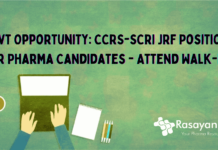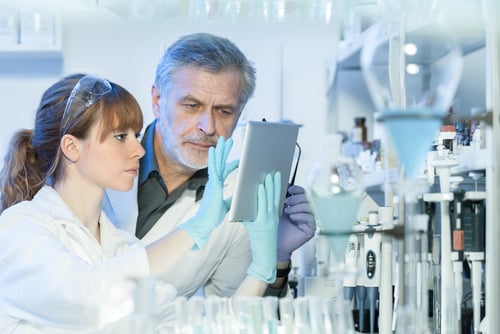IACS PhD Chemical Science Job Opening – Applications Invited
Dont forget to check out possible interview questions for this job below
Applications are invited for the post of a Research Associate -2 (RA-2) to work in the
area of Theoretical Understanding of Photochemical Phenomena in Biological
Systems at School of Chemical Sciences IACS, Jadavpur, Kolkata- 700032.
Job Title: Research Associate -2 (RA-2)
Eligbility Criteria: Candidates should have a Ph.D in Chemical Sciences and two years Postdoctoral experience in the area of computational chemistry with consistently good academic records.
Candidates with expertise in Excited State Quantum Chemical Calculations, Classical
MD Simulations, Hybrid QM/MM methods are strongly encouraged to apply.
Research Area: Theoretical Understanding of Photochemical Phenomena in Biological
Systems
Fellowship: As per Rules of IACS
Application close Date: 14/04/2023, 5.00 PM. (Two weeks from the date of publication
on the IACS website)
Remarks: Shortlisted candidates will be informed via email.
Interview: Online interview process of the shortlisted candidates will be held on
XX/04/2023.
Email intimation would be sent to applicants prior to the date of interview.
Duration: This post is purely temporary for one year.
How To Apply:
Interested candidates with the above qualification and experience are requested to
apply with
View Main Notification
Possible Interview Questions and Answers for the above job vacancy
- What inspired you to apply for this Research Associate -2 position, and how does your expertise in computational chemistry align with the research area of Theoretical Understanding of Photochemical Phenomena in Biological Systems?
Answer: As a Ph.D. holder in Chemical Sciences, I have always been fascinated by the interdisciplinary nature of photochemical phenomena in biological systems. My expertise in Excited State Quantum Chemical Calculations, Classical MD Simulations, and Hybrid QM/MM methods allows me to investigate these phenomena using computational approaches.
2. Can you describe your previous research projects related to photochemical phenomena in biological systems, and how do they contribute to your understanding of the research area?
Answer: My previous research projects include investigating the electronic excited states and photochemistry of organic and biological molecules using quantum chemical calculations and molecular dynamics simulations. These studies have provided me with a better understanding of the mechanisms and pathways involved in the photochemical reactions of biological systems.
3. What are some of the challenges you have faced in your research related to photochemical phenomena in biological systems, and how did you overcome them?
Answer: One of the major challenges in this research area is the need to balance accuracy and computational efficiency when modeling large biological systems. To overcome this challenge, I have employed a range of methods, such as multiscale modeling approaches and coarse-grained simulations, which allowed me to investigate these phenomena while balancing the computational cost and accuracy of the simulations.
4. Can you describe your experience working in a collaborative research environment, and how did you contribute to the success of the projects?
Answer: During my postdoctoral experience, I have worked with interdisciplinary research teams consisting of experimentalists and theorists. My contributions to the success of the projects include designing computational models and simulations that complement the experimental data, interpreting the results in the context of the research questions, and presenting the findings in conferences and publications.
5. How do you plan to approach the research project on Theoretical Understanding of Photochemical Phenomena in Biological Systems as a Research Associate -2, and what are your long-term research goals in this area?
Answer: My approach to the research project will involve developing computational models and simulations to investigate the electronic excited states and photochemistry of biological molecules, including proteins and nucleic acids. My long-term research goals in this area include developing new theoretical frameworks and computational methods that can better capture the complexity of photochemical phenomena in biological systems and contribute to the development of new drugs and materials.
Editors Note: IACS PhD Chemical Science Subscribe to Rasayanika for the latest chemistry and Pharma job openings, follow us on Facebook and Telegram and subscribe to our youtube channel for the latest updates on chemistry and Pharma jobs and much more.














































